Trumped
Published by Rowman & Littlefield
A wholly owned subsidiary of The Rowman & Littlefield Publishing Group, Inc.
4501 Forbes Boulevard, Suite 200, Lanham, Maryland 20706
www.rowman.com
Unit A, Whitacre Mews, 2634 Stannary Street, London SE11 4AB
Copyright 2017 by Rowman & Littlefield
All rights reserved. No part of this book may be reproduced in any form or by any electronic or mechanical means, including information storage and retrieval systems, without written permission from the publisher, except by a reviewer who may quote passages in a review.
British Library Cataloguing in Publication Information Available
Library of Congress Cataloging-in-Publication Data
978-1-4422-7938-4 (cloth)
978-1-4422-7939-1 (paper)
978-1-4422-7940-7 (electronic)
 The paper used in this publication meets the minimum requirements of American National Standard for Information SciencesPermanence of Paper for Printed Library Materials, ANSI/NISO Z39.481992.
The paper used in this publication meets the minimum requirements of American National Standard for Information SciencesPermanence of Paper for Printed Library Materials, ANSI/NISO Z39.481992.
Printed in the United States of America
Preface and Acknowledgments
T rumped will be one of the first, but not even close to the last, attempts to unpack what happened in the stunning 2016 presidential election. Donald Trump broke almost all of the rules of politics to first lead and then win the Republican presidential nomination. He followed that triumph with a victory that was even more improbable: edging out heavily favored Hillary Clinton in one of the great upsets in presidential campaign history.
Among the rules that Trump broke: winning a presidential election despite being considerably outspent in the general election; losing the national popular vote by over two percentage points but still winning the Electoral College, something that has happened rarely in American history; emitting a constant stream of controversial statements that would have sunk most previous candidacies; and capturing a presidential nomination despite having very little support from his own partys leadership.
Our book starts with the three of us breaking down what happened in the presidential race (chapter one, Larry J. Sabato), the closely contested battle for the U.S. Senate and Governors (chapter three, Geoffrey Skelley), and the race for the U.S. House (chapter four, Kyle Kondik). Sandwiched in between those chapters is a deep demographic dive into the presidential results by David Byler of RealClearPolitics (chapter two).
Veteran political reporter Rhodes Cook comes next (chapter five) with a detailed look at the primary results in both the Democratic and Republican races, contests that stayed very competitive well into the spring. Robert Costa (chapter six) and Greg Sargent (chapter seven), both of the Washington Post, follow with a rich recounting of, respectively, the Republican and Democratic primaries.
The growing Hispanic vote was the subject of much pre- and post-election scrutiny, with several analysts taking issue with the suggestion by the national exit poll that Clinton carried only two-thirds of the Hispanics, about on par with Barack Obamas 2008 and 2012 performances (or even a little worse). Matt Barreto, Gary Segura, and Tom Schaller of the polling firm Latino Decisions convincingly argue Clinton did better than the exit poll suggested as part of their analysis of Latinos in the election (chapter eight).
Ronald B. Rapoport of the College of William and Mary and Walter J. Stone of the University of California, Davis kept tabs on Republican identifiers throughout the election to measure how they felt about Donald Trump, and they explain how Trump, even in victory, had somewhat soft support from his own party (chapter nine).
National polls taken together got reasonably close to projecting the overall national vote in November, but many individual national surveys and surveys of quite a few battleground states gave the wrong impression that Clinton was leading. Ariel Edwards-Levy, Natalie Jackson, and Janie Velencia look at the evolving polling industry and what lessons 2016 provides to pollsters (chapter 10).
The role of the media and the role of money in the 2016 race (chapters 11 and 12) are explored by Georgetown Universitys Diana Owen, and former Federal Election Commission Chairman Michael Toner and former FEC analyst Karen Trainer, respectively. Alan Abramowitz (chapter 13) then makes the case that the rise of racial resentment among whites helped Trump to his narrow victory. RealClearPolitics Sean Trende (chapter 14) diagnoses what went wrong with the theory of the Emerging Democratic Majority and how Republicans won the White House despite demographic changes that, at least on the surface, seemed to benefit Democrats substantially. Finally, Susan MacManus of the University of South Florida and Anthony A. Cilluffo bring us ten lessons from this crazy campaign.
Our University of Virginia Center for Politics wraps up each major national election with a volume that is released as soon as humanly possible the year following that election. We thank our authors for participating in this project and for meeting what can be challenging deadlines that coincide with the holidays. We also want to salute the Center for Politics staff for their support, particularly Associate Director Ken Stroupe, Chief Financial Officer Mary Daniel Brown, and Executive Assistant Tim Robinson.
We also want to thank the team at Rowman & Littlefield for their support of this project, especially our editors, Jon Sisk and Kate Powers.
At the dawn of the Age of Trump, millions of Americans are ecstatic, and millions more are mortified. We can be sure of but one thing: None of the days ahead will be boring, at least for those who follow and study politics. This volume will be just a starting point for what will be one of the most intensely studied elections of all time.
Larry J. Sabato, Kyle Kondik, and Geoffrey Skelley
University of Virginia Center for Politics
Charlottesville, Virginia
January 2017
The 2016 Election That Broke All, or At Least Most, of the Rules
Larry J. Sabato
A ll of us living in the twenty-first century now know how people felt in 1948, when the Chicago Tribune headline DEWEY DEFEATS TRUMAN was prematurely published, and the pundits and pre-election polls were dead wrong.
Yet 2016 was even worse than 1948. Instead of just a couple of prominent pollsters on the scene when President Harry Truman upset the heavily favored Republican Thomas E. Dewey, there were dozens of independent pollsters and hundreds of surveys taken nationally and in the battleground states. Some national surveys in 2016 did reasonably well, though many surveysespecially in the highly competitive statesdid not. Rather than halting the polling weeks before the 1948 election (believing the result was a done deal), the 2016 pollsters continued measuring public opinion right up to election eve, which should have made surveys more accurate, but did not in many cases.
Comparing Donald Trumps upset to Harry Trumans is not to equate the two, of course. Truman was the incumbent while Trump defeated the incumbent White House party. Truman had had a long career in politics and government, while Trump had never served a day in any public office. Truman won the popular vote by 4.5 percentage points; Trump lost it by 2.1 points However, their electoral vote totals were similarTruman at 303 and Trump at 304.
Their campaigning styles were also akin to one another. Truman loved to give em hell, and Trumps incendiary (and often inaccurate or outright false) charges were a new form of hell, augmented by his frequent use of Twitter to incite his millions of followers. Additionally, both Truman and Trump were underdogs, a status that confers a kind of freedom to roll the dice, and their unpolished speaking styles and populist approach attracted the white working class disproportionately.


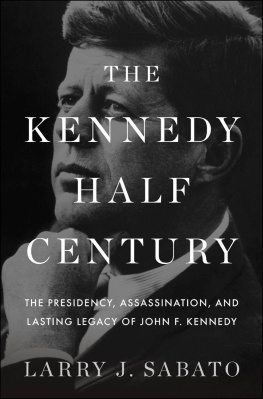
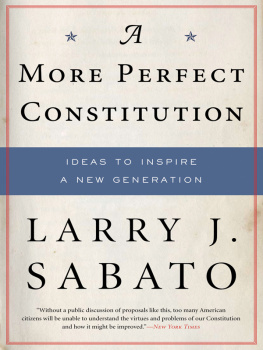
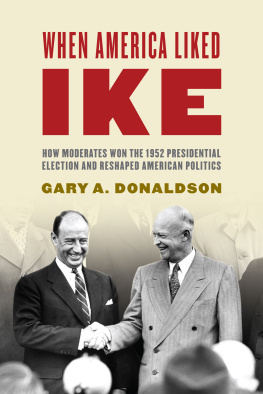
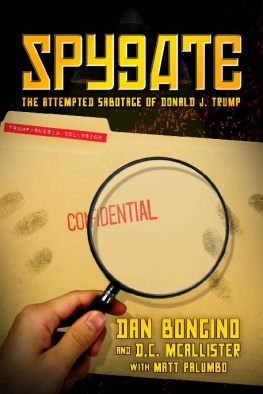
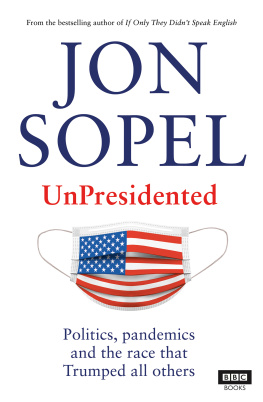
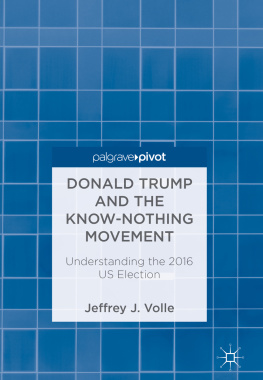
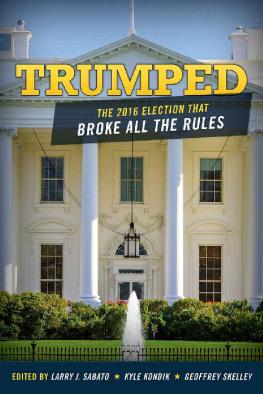

 The paper used in this publication meets the minimum requirements of American National Standard for Information SciencesPermanence of Paper for Printed Library Materials, ANSI/NISO Z39.481992.
The paper used in this publication meets the minimum requirements of American National Standard for Information SciencesPermanence of Paper for Printed Library Materials, ANSI/NISO Z39.481992.